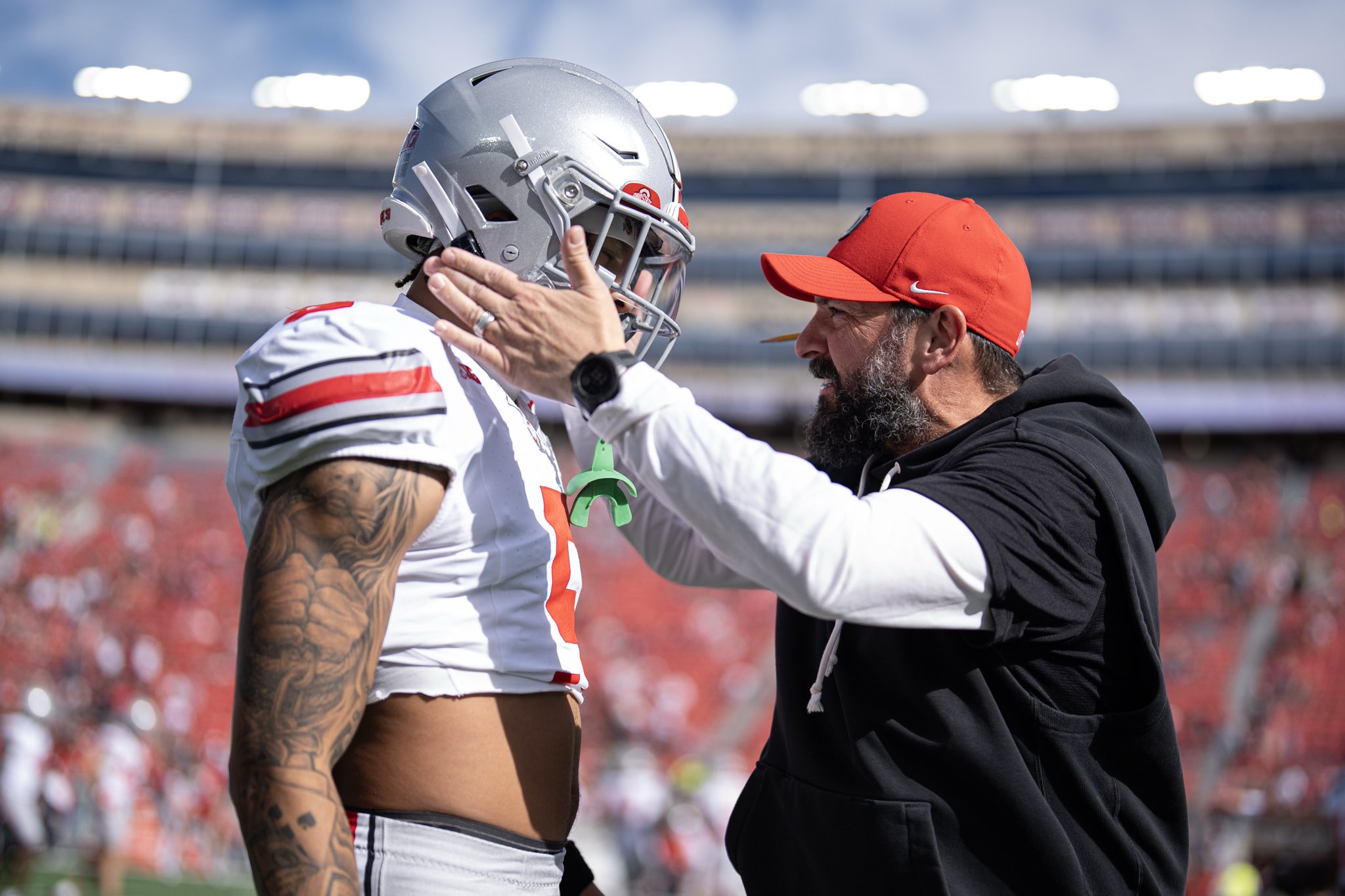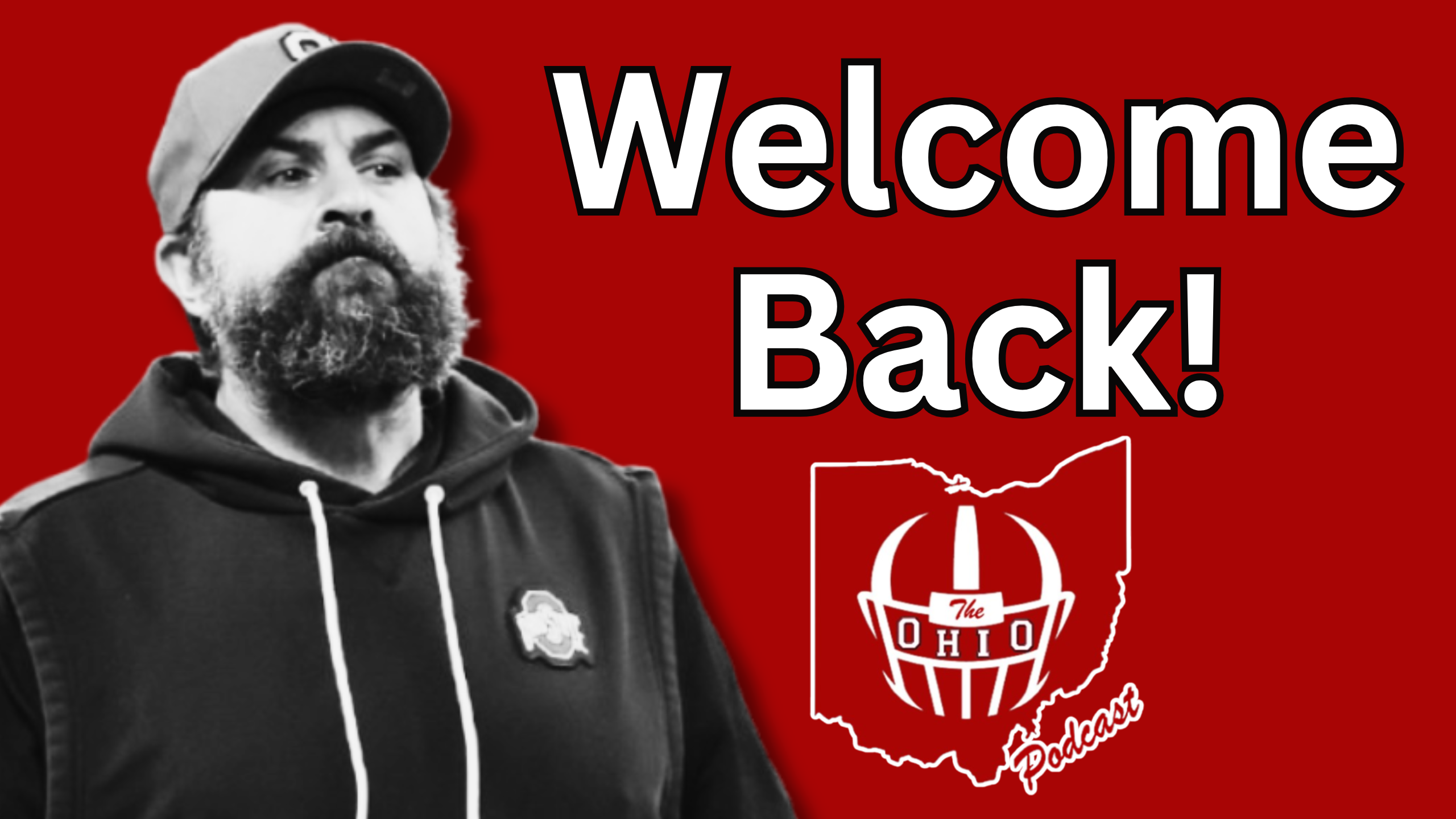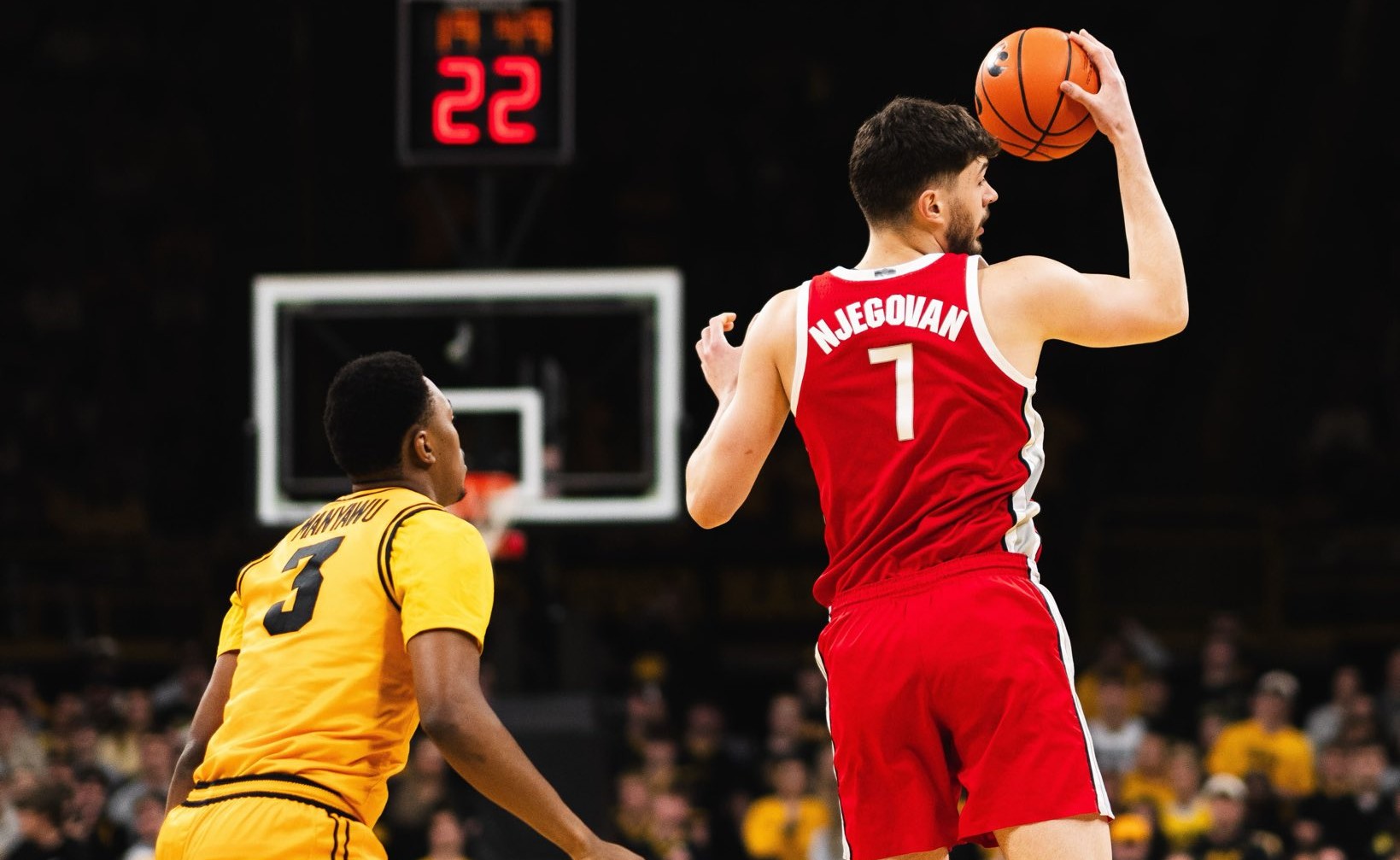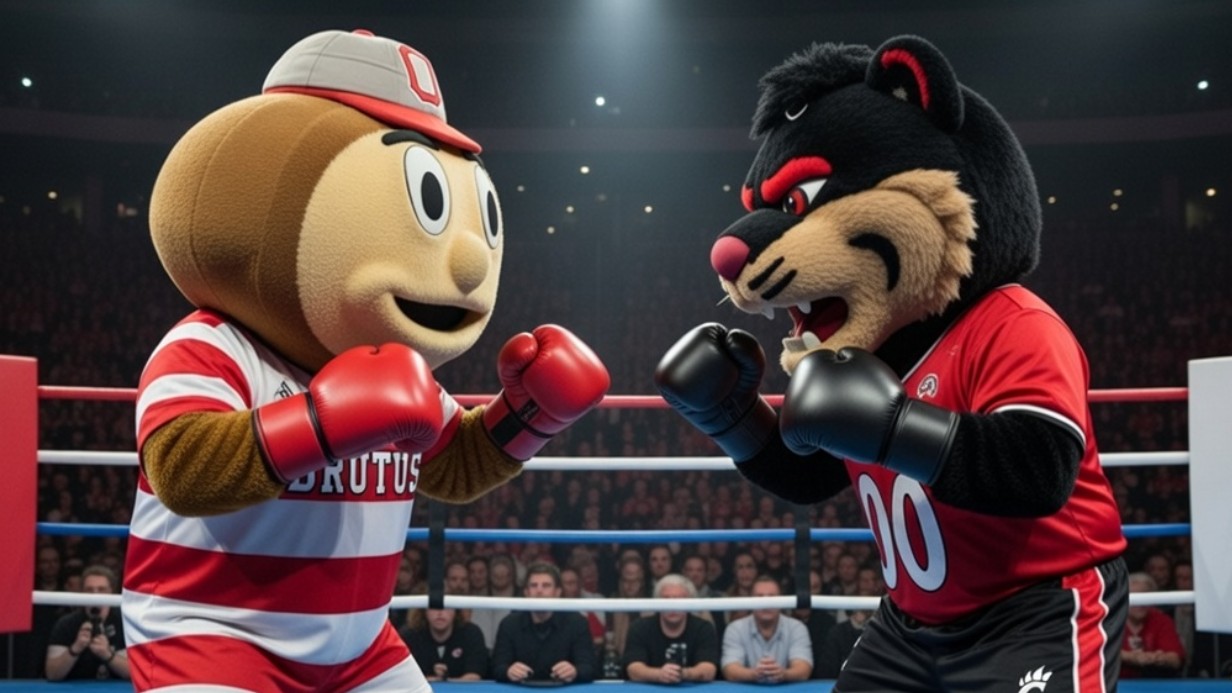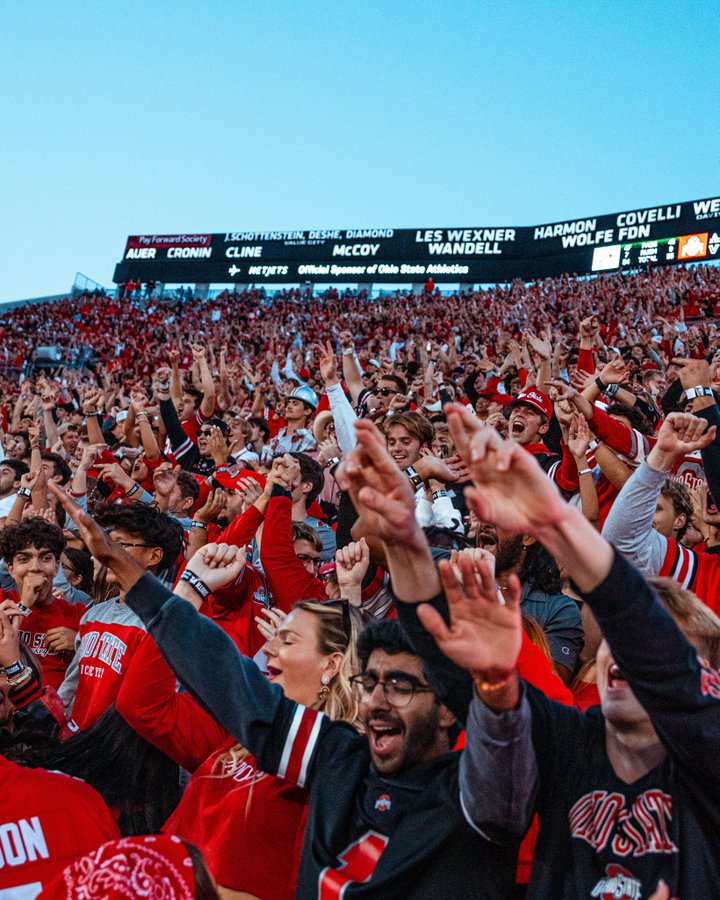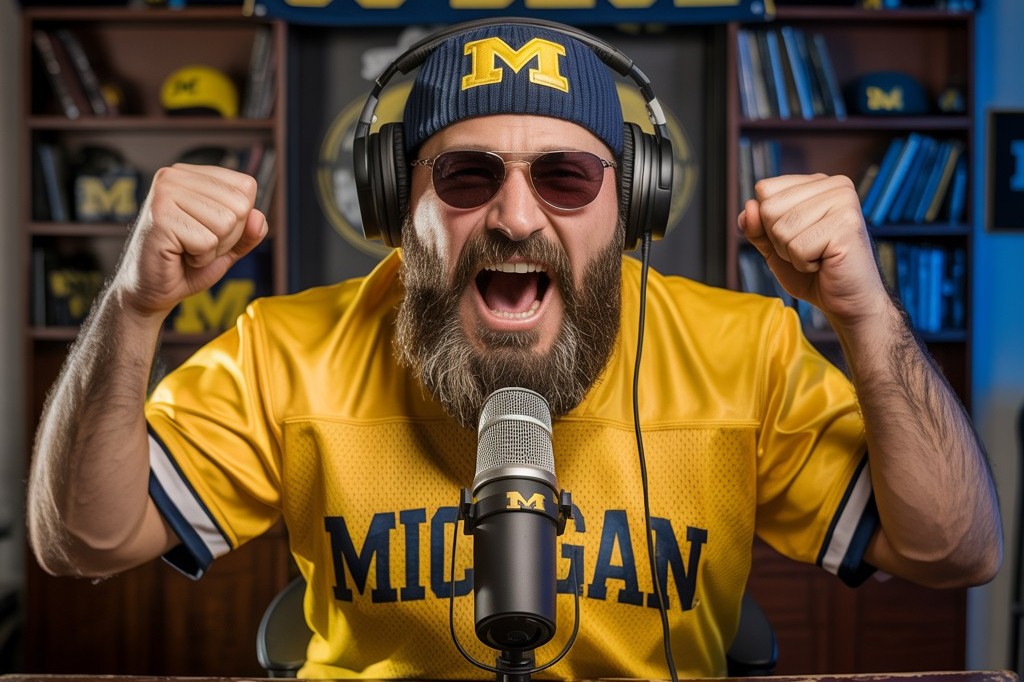
In an era where fandom often blurs the lines between loyalty and delusion, a Michigan supporter known to many Buckeyes as “Burks” has done the unthinkable — walked away from his own team’s media ecosystem. In a recent edition of The OHIO Podcast, co-host Eric shared a passionate and telling conversation with Burks, a longtime caller and rare voice of reason from the maize and blue camp. The takeaway? Even Michigan fans are getting tired of the narratives and misinformation being peddled by their own media.
Burks’ decision to disengage from the Michigan YouTube community wasn’t driven by rivalry banter or smack talk — it was rooted in disappointment. What triggered it all was a string of illogical, emotionally charged takes, particularly about Ohio State’s elite freshman wide receiver Jeremiah Smith. According to Burks, prominent Michigan content creators claimed Smith “wasn’t special,” dismissing the young receiver’s extraordinary freshman campaign as mere hype.
But here are the facts: Jeremiah Smith, a 6’3″, 215-pound freshman from Miami Gardens, Florida, amassed 76 receptions, 1,315 yards, and 15 touchdowns in his debut season. Those stats don’t just reflect promise — they place Smith among the greatest receivers ever to wear scarlet and gray, even eclipsing first-year numbers from NFL standouts like Marvin Harrison Jr., Garrett Wilson, and Chris Olave. When held against the performances of Ohio State legends such as David Boston and Terry Glenn, Smith’s numbers still shine.
Smith is not only physically gifted — possessing size, speed, and agility beyond his years — but he has also earned praise for his work ethic, intelligence, and maturity. Ohio State wide receivers coach Brian Hartline has described him as “different” from any player he’s coached, which includes several first-round NFL draft picks. His potential trajectory could make him the greatest receiver in school history — a lofty claim, but one that seems increasingly realistic with each performance.

Burks didn’t stop at Smith. He took issue with more unfounded opinions from Michigan’s podcasting circles, including the assertion that Blake Corum is better than Ashton Jeanty and the claim that Michigan has produced better running backs than Ohio State in the 21st century. A quick scan of NFL draft data quickly dispels that narrative: Ohio State has produced multiple first- and second-round running backs since 2000 — Ezekiel Elliott, Beanie Wells, J.K. Dobbins, Carlos Hyde, and more — while Michigan’s contributions have been comparatively modest.
This is what struck a chord for Ohio State fans tuning into the show. The frustration Burks voiced — a desire for honesty, critical thinking, and factual debate — is something we value deeply at The OHIO Podcast. It’s why we don’t always agree on everything between hosts, but we engage in healthy debate because truth matters. The willingness to hear the other side and pursue facts over emotion sets real fans apart from those who simply echo team propaganda.
Unfortunately, as Eric noted, this kind of level-headed discussion is becoming rare in sports media. More and more, platforms exist not to inform but to reinforce tribal thinking. That’s why Burks’ decision to unsubscribe from the echo chamber is not just notable — it’s commendable. It shows that truth still matters, even when it challenges the narrative you’ve been sold.

As for Jeremiah Smith, unless derailed by injury, off-the-field issues, or complacency, he is on a path to become one of the most dominant players Ohio State has ever seen. He’s already better than most upperclassmen and NFL-bound veterans. And perhaps most importantly, he’s not just a generational talent — he’s a generational worker.
In closing, while Burks may have lost faith in his team’s media, he’s found a community at The OHIO Podcast that values what he does: truth above hype, facts above fantasy. As fans, we may be on opposite sides of the rivalry, but in our pursuit of truth, we stand on common ground.


